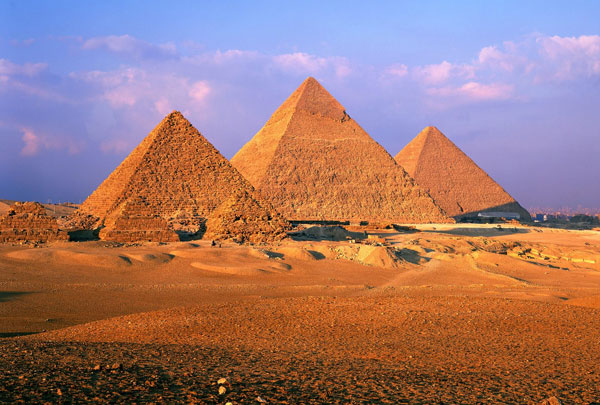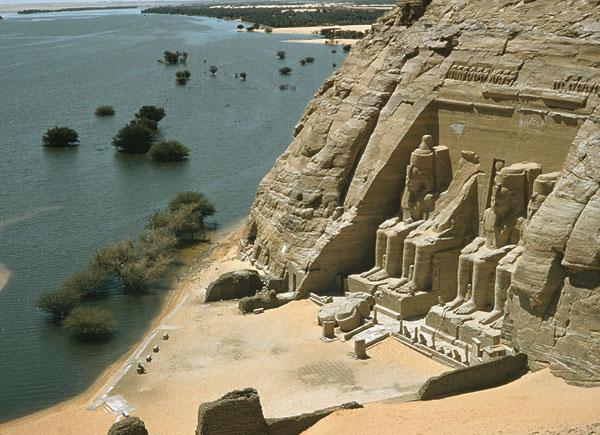Ancient Egypt collapsed because of climate change
According to research by American scientists, it is the phenomenon of climate change that has brought about 'super drought' that pushed the ancient Egyptian kingdom to the area of 4,200 years ago.
After analyzing samples of 7,000-year-old pollen and charcoal on the Nile River, researchers found evidence of many fires and crop failures. It was these super-droughts that led to a lack of food, pushing people to starvation and death.

The Great Pyramid of Giza was built by the Egyptians in 2,560 - 2,540 BC
The ancient Kingdom of Egypt, located near the Nile River, collapsed completely over 4,200 years ago, and the cause of modern science was determined to be inconsistent with climate change.
The period of more than 4,200 years is the period of brilliant formation and development of pyramid projects, but this is also the time of continuous occurrence of fires and droughts, causing color loss and social instability.
According to researcher Marcia McNutt working at the US Geological Survey (USGS), more than 4,000 years ago, even ancient pyramid builders with good health became victims of change. climate.
During the survey, the scientists found that the amount of pollen deposited on the Nile fell sharply, meaning that few crops were cultivated, while the amount of charcoal increased rapidly in four different periods belonging to the period of 3,000-6,000 years ago.

Abu Simbel Temple was built after a battle
Super drought has been recorded in geological documents
One of the typical events is the explosion of super-drought battles that took place around 4,200 globally, leading to hunger and the cause of the end of the ancient Egyptian kingdom, as well as the impact large to many other cultures located in the Mediterranean region.
These events have been listed in historical documents. The first event happened 5,000 years ago when the process of consolidating the Upper and Lower Egypt took place as well as the Uruk Kingdom - today Iraq collapsed.
The second event took place 3,000 years ago in the eastern Mediterranean region, regarding the decline of the Ugarit kingdom and starvation in Babylon and the kingdoms of Syria.
Professor Benjamin Horton at the University of Pennsylvania (USA) said: 'Geographical research has solved the mysteries of ancient climate, while pollen and microorganisms like charcoal can be supplemented. or prove for archived or missing archaeological documents'.
Reference: Daily Mail
- Learn the disasters that destroyed ancient Egypt
- An ancient empire may have collapsed due to climate change
- Dust can also cause a mighty empire to collapse
- Ancient Romans were the agents of climate change in Europe 2,000 years ago
- This is how Dubai copes with climate change
- Climate change changes the evolution of mankind
- Climate change mass extinction
- What is Climate Change?
- Ancient climate change: palm trees give way to spruce
- Homosexuality in ancient Egypt
- The period of 'ice age' is the cause of epidemics, the empires collapse and migrate
- Marching for climate change around the world
 Discovered an ancient centipede fossil 99 million years old
Discovered an ancient centipede fossil 99 million years old Discovered bat-like dinosaurs in China
Discovered bat-like dinosaurs in China Discovered a 200-year-old bronze cannon of the coast
Discovered a 200-year-old bronze cannon of the coast Discover 305 million-year-old spider fossils
Discover 305 million-year-old spider fossils